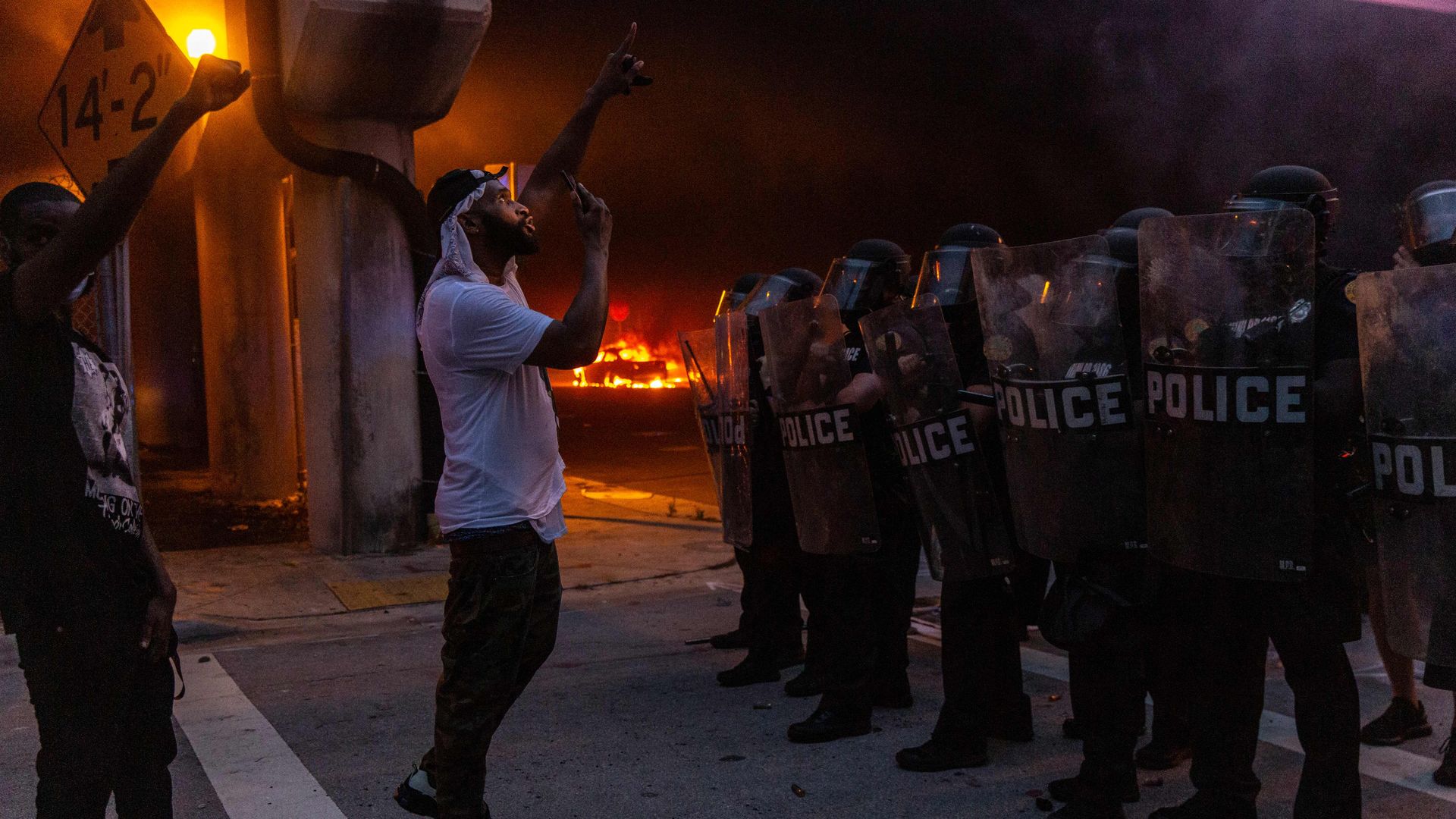Apr 15, 2021 - Politics & Policy
Florida lawmakers send controversial "anti-riot" bill to Gov. DeSantis
Add Axios as your preferred source to
see more of our stories on Google.

Protesters confronting police in riot gear in May 2020 in Miami, Florida, during demonstrations over the death of George Floyd. Photo: Adam Delguidice/AFP via Getty Images
